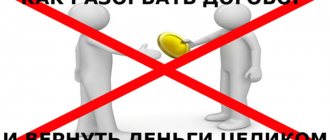Home / Situations
Back
Published: 01/03/2020
Reading time: 4 min
0
1480
The ambulance refused to come when called. What to do in such a situation? What to do and where to complain? Or maybe the actions of health workers are legal? We understand an ambiguous situation.
- Legal norms governing the work of the ambulance. The right of citizens to medical care
- What to do if doctors refuse to come
- Institutions for contacting the head of the ambulance station
- Contacting the police
- Appeal to the Ministry of Health
- To the prosecutor's office
In what case should you call an ambulance?
The patient himself decides whether his condition corresponds to the objective need for an emergency room. As a result, the line often receives unjustified requests.
“Firstly, ambulances are called by patients who believe that they urgently need to go to the hospital: either due to the severity of their condition, or to urgently perform tests that for some reason are not available in the clinic,” says the deputy chief physician of the Emergency Research Institute help them. I.I. Dzhanelidze (emergency medical services) Andrey Makhnovsky. — Secondly, patients call who cannot call a local doctor at home. As a rule, such calls come in the evening and at night - in this case, the ambulance performs a non-core function. Thirdly, people tend to call “03”, considering ambulance doctors to be more qualified than those at clinics, which is fundamentally wrong.”
4168 “The number of fatal heart attacks and strokes has increased”
The call is received by a paramedic, who asks about the patient’s condition, clarifies complaints and sorts requests into two categories: emergency or emergency care. This determines how quickly the doctors arrive.
For the first group, an exhaustive list of reasons is provided. We are talking about such sudden acute diseases, conditions, exacerbations that pose a threat to the patient’s life: disturbances of consciousness, breathing, circulatory system, pain, trauma, poisoning, wounds with bleeding or damage to organs, burns, childbirth, threat of miscarriage, bleeding. This also includes mental disorders if they are accompanied by actions of the patient that are dangerous to others. The ambulance should arrive to the patient in a maximum of twenty minutes. The nearest available brigade is called.
Reasons for emergency care include ailments that clearly do not pose a threat to the patient’s life, as well as when it is necessary to declare death. In this case, the nearest medical carriage leaves, provided there are no emergency calls. The arrival time is fixed on the lower scale: from 20 minutes. So, waiting for doctors for several hours is the norm from a legal point of view, although there are demands to fix the upper limit.
“During the pandemic, the total number of calls has increased significantly, primarily due to emergency calls. But even during a pandemic, most emergency calls are completed within the established time frame, while emergency calls are completed with delays, sometimes quite significant. With such a flow of patients, the paramedic who receives calls first tries to direct the team to those who need emergency medical care: for suspected acute coronary syndrome (myocardial infarction), for suspected stroke, severe injuries, acute surgical diseases and other life-threatening conditions. Then, in the order in which they are received, urgent calls are serviced - this is probably the principle of social justice,” explains the expert.
Our rights
Every person can receive qualified medical care:
- It does not matter his registration, citizenship, registration, absence or presence of passport data.
- Emergency assistance is provided free of charge.
- If medical workers ask a patient or his relatives for money for services or medicines when providing assistance, then this is a reason to contact the police.
- The patient has the right to refuse hospitalization on an urgent basis; for this he needs to write a receipt.
Is it possible to provide assistance while the ambulance is on the way?
Definitely, but remember that you are taking on a lot of responsibility, and in some cases, you can cause harm. It is better to coordinate actions with the ambulance dispatcher. If the employee finds it difficult to answer, ask to speak with the doctor on duty who specializes in your problem.
First aid depends on what symptoms the patient is experiencing. Here are some of the most common cases that require prompt action.
Myocardial infarction
A heart attack can strike anyone, young people are no exception, says Rostislav Nilk, head of cardiology department No. 1 at the Elizavetinskaya Hospital. If you have chest pain, especially those associated with physical activity, you should visit a cardiologist. This way you can prevent a heart attack - anything is better than dealing with its consequences.
5070
The government doesn't notice silent killers
“If the pain is located behind the sternum, it is strong, squeezing or burning in nature - this is a characteristic sign of a heart attack. It can radiate to the left arm, shoulder blade, shoulder, lower jaw and neck, or to the abdominal area. With this pain, shortness of breath, an irregular or slow or fast pulse, and increased sweating may appear,” notes Nielk.
It is necessary to lay the patient down, free the neck from clothing, give one dose of nitrospray under the tongue or dissolve one tablet of nitroglycerin. After five minutes, repeat the procedure if the pain does not go away. After that, it’s no longer possible, because the pressure can drop significantly.
“If you have used nitroglycerin twice and the pain does not go away, you need to chew 300 mg of acetylsalicylic acid - this is either ½ tablet of regular aspirin, or any other drugs equal to 300 mg of acetylsalicylic acid. In 10 minutes you need to call an ambulance. Unfortunately, you can’t do anything else at home on your own,” the expert sums up.
Stroke
Recognizing an acute disruption of the blood supply to the brain is not so difficult. As a rule, the patient suddenly experiences facial asymmetry, weakness or loss of sensitivity in the arm, leg, speech disorder, dizziness, unsteadiness of gait, depression of consciousness, and a sudden convulsive attack. Ask the patient to raise both hands or smile - asymmetry will be easy to suspect, says Robert Arushanov, a neurologist and psychiatrist at the Elizabeth Hospital. Remember, time is of the essence.
2949
The biggest problem is those who deny Covid
“Call an ambulance as quickly as possible. Timely and correct care can prevent damage to brain cells. Reassure the patient and do not panic yourself. Place the person in a comfortable horizontal position if they are conscious or have no problems breathing. If they are violated, place the patient on his side for better flow of saliva. Provide fresh air, unfasten buttons, untie ties, and remove tight clothing. If you have high blood pressure, raise your head, and if you have low blood pressure, raise your legs a little. Continue to control your blood pressure,” notes the neurologist.
Be sure to find out the time of onset of symptoms, the presence of chronic diseases and medications taken. This will reduce the time spent talking with doctors. Do not leave the patient alone, record his condition. Resuscitation actions - if necessary and the appropriate skills are available. It is not recommended to feed and water the patient due to possible swallowing problems, as well as to give pills without the consent of the doctor, adds Arushanov.
“If a person is alone during a stroke, call an ambulance or, if it is technically easier (for example, the phone has a speed dial), those who can provide help: relatives, friends. If you can’t, go out onto the landing or at least unlock the door. You should know that the condition can quickly deteriorate, that is, if now a person still has the opportunity to call and talk, then in half an hour it may no longer be there,” notes the ORBI Stroke Foundation.
Acute abdominal pain
You should immediately consult a doctor if you experience the following symptoms: the pain intensifies over time and does not go away or becomes like contractions. Mushy stools and diarrhea may cause concern. Nausea, vomiting of food, bile, and blood appear. It is also worth calling an ambulance if pain begins, and the patient knows that he has a chronic disease, for example, a peptic ulcer of the stomach or duodenum. In this case, there is a high chance of an ulcer opening with bleeding, notes gastroenterologist Alena Merkulova.
“Before the doctors arrive, you can take antispasmodics, but you should refuse analgesics. They blur the clinical picture: the pain will go away, but the cause has not been removed. I don’t recommend drinking water, except maybe a sip. You can't eat food at all. What if you need surgical treatment with anesthesia? Then a complication in the form of aspiration pneumonia is possible: the release of stomach contents into the bronchial tree. Do not use a heating pad or ice pack. They are necessary if you need to stop the bleeding, but we certainly don’t know whether there is bleeding or not,” the doctor notes.
Hypoglycemic coma
When blood glucose levels drop, hypoglycemic coma is possible. It is accompanied by headache, nausea, and vomiting.
“If you lose consciousness, you need to take Glucogon, which, however, has been in short supply in Russia in recent months. As an alternative, put a little honey, condensed milk or other viscous sweet liquid behind your cheek. Glucose is also sold in gel form. You cannot pour in or add anything, otherwise the airways will be clogged. If the person has not lost consciousness, you can offer him a sweet liquid or candy,” says endocrinologist Tatyana Makhova.
The opposite condition is also possible - hyperglycemic coma, which manifests itself due to excess glucose and develops over several hours. The signal will be thirst, large loss of fluid, fatigue, nausea, and the smell of acetone from the mouth. The patient seems to be in a inhibited state. In this case, it is important to call an ambulance while the patient is still conscious.
“In both cases of coma, it is important to put the person on his side and make sure that the tongue does not sink,” the endocrinologist added.
What about injuries or respiratory arrest?
Unlike previous recommendations, additional skill and knowledge will be required. You can make the patient's situation noticeably worse, and in some cases, kill. TV series often show scenes of amateurs resorting to an atypical tracheotomy with a pen if a person is choking and suffocating. Remember, legally this can be classified as a crime - causing harm to health.
First aid varies depending on the symptom. So, if breathing stops and loss of consciousness, cardiopulmonary resuscitation will be required, and if the patient is choking, the Heimlich maneuver will be required. Actions vary for injuries. In some cases, as in case of external bleeding, a tourniquet is useful, and in others, as in case of a fracture, additional fixation of the site of injury is needed. Separate rules have been established for burns and hypothermia.
Remember that without detailed knowledge of first aid it is better not to be a hero. Ordinary school knowledge may not be enough.
Patient's actions in case of refusal
A refusal to provide assistance, including necessary hospitalization, must be appealed.
A doctor’s refusal to admit a patient is grounds for filing a complaint with the head physician. The complaint must be made in writing in two copies. The text must describe the situation that occurred, as well as exactly what rights were violated.
The petition part indicates a request to provide assistance and punish the doctor who refused it.
The complaint is submitted to the secretary of the chief physician. The secretary must mark receipt on the complainant's copy.
In case of a complaint against a hospital, you must contact Roszdravnadzor, health insurance funds and the Ministry of Health.
In some situations, such a complaint can be filed with the police or prosecutor's office. This is possible if the refusal to provide assistance led to a serious deterioration in health, which required amputation of limbs, other surgery, or led to the death of the patient.
In case of extortion of a bribe for hospitalization, you should also contact the prosecutor's office.
Material damage resulting from the hospital's actions must be compensated in court. The claim specifies the details of the hospital, the guilty employees, the victim, as well as all the circumstances of the case and supporting documents.
The ambulance doesn't arrive. What to do?
Most likely, your call was classified as urgent rather than emergency. Try to call the dispatcher back and explain why your condition or the well-being of the patient next to you requires the most urgent medical intervention possible. According to Makhnovsky, doctors, as a rule, always arrive on time for emergency calls, even despite the pandemic.
However, in practice anything can happen. A Rosbalt reader told how a friend’s father was dying of a heart attack while waiting for doctors. The carriage arrived an hour later - it was already late.
If calling 03 doesn't help, consider alternatives. You can call a commercial ambulance, which is generally known for its speedy response, or you can call your local health department's hotline to complain.
Complaint to management
This measure is capable of punishing guilty workers and is quite capable of fair punishment. After the complaint reaches the manager’s desk, he takes action and reviews the actions of his subordinates for compliance with legal documents. As a result, you will receive a written response with management’s decision to your complaint. It often happens that management covers up for their guilty employees, but if this measure does not produce results, then it is necessary to move on to extreme measures.
Is it possible to take a patient to the emergency room yourself without waiting for doctors?
Yes, but the responsibility is on your shoulders. During transportation, the patient may become worse.
“There is a difficulty - the patient must know which hospital can accept him. Which institution has been transferred to covid status, and which is multidisciplinary? Is there the necessary infrastructure in place? Of course, they can admit you, give you oxygen, a pain-relieving injection, but it is possible that the employees will also call an ambulance to transfer you to your destination,” clarifies an industry representative who wished to remain anonymous.
The doctors interviewed by the correspondent agree: transportation is possible both for a stroke and, for example, for acute abdominal pain. But it is best to consult with an emergency medical technician. Every disease has its nuances.
Written complaint
Not everyone knows how to correctly write a letter of complaint. The complaint is drawn up in free form by hand. The rules are as follows:
- There is no need to express yourself and write unnecessary information.
- It is better to write the statement unemotionally. That is, it is necessary to indicate specific facts. It is better not to exaggerate them.
- If conflicts with medical personnel are repeated on an ongoing basis, then information on each case must be indicated, indicating the date of the incident.
- Use specific facts in your application. Such a complaint is written not only against the ambulance team, but also against doctors of other categories.
- It is necessary to try to find information about the team that did not make the call or behaved incorrectly during it. The statement cannot generalize the facts; it must be written for each specific case.
How to reduce the burden on doctors?
The most obvious thing is to wait until the end of the pandemic. But this problem is systemic in nature, and no coronavirus - or rather, the absence of it - will save the situation.
“We must finally pay decent wages and engage in staffing, increase the number of teams, because today it is formally underestimated. But this requires a real increase in funding for ambulances. There is no other quick way out,” Konoval notes.
According to an employee from the ambulance industry, it is necessary to build a healthcare system based on the principle of unity of command. In some regions, for example, in St. Petersburg, district medicine is subordinated to the district administration, and hospitals and the city ambulance station are subordinated to the health care committee.
“It’s hard to establish harmony. Somewhere there is an abundance of resources, and somewhere there is a shortage, regardless of the tasks at hand. It is necessary to create inter-district health authorities. This would partially solve the problem,” the expert is sure.
Nikita Strogoff
They refused to serve me at the checkout without a mask and forced me to buy one on the spot. Is this legal?
Yes, but you are not required to purchase the mask from this store.
No offense to COVID
Photo: RIA Novosti/Alexander Kryazhev
— The store may require you to wear a mask or offer to purchase one. Store sellers can legally refuse to serve a customer without a mask, explained Maria Spiridonova.
The seller who served me did not have a mask covering his nose. So it is possible?
No. According to the virologist, professor at the National Research Center for Epidemiology and Microbiology named after N.F. Gamaleya by Anatoly Alshtein, a mask that does not cover the nose is useless and does not prevent the spread of the virus.
Shield it: scientists have proven that transparent shields are more effective than masks
It is best to choose tall products with rounded edges
“They don’t wear a mask like that, you might as well wear it around your neck,” he said.









